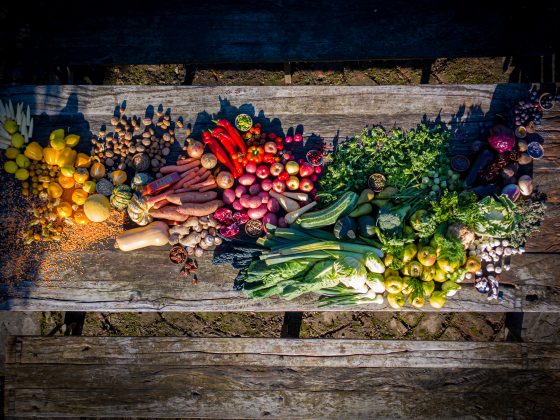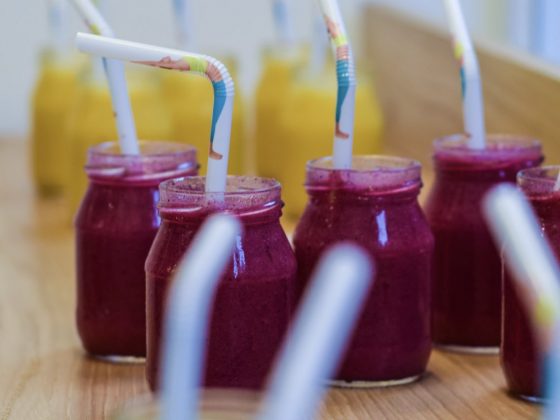A Gut Reset – Do You Need To Spring Clean Your Gut?
Whilst our socially conditioned minds start to settle into the rhythm of Spring that is beginning to bloom stronger with every lighter day, the temptation to start the Spring cleaning is building. The home always seems to benefit but when was the last time you considered Spring Cleaning your gut??
As ever, we often pay more attention to our outside environment to make ourselves ‘feel better’ but we, more often than not, miss the fact that our bodies need this care and focus even more so to truly ‘feel better’.
Our gut microbiome is now more commonly known as our second brain and research has been growing and educating us in leaps and bounds in more recent years around this fact than ever before. The gut microbiome and microbiota, its health and diversity within us is now known and proved to be integral in an intangible number of processes and functions in the body. It turns out that there are some very key features associated with a healthy gut microbiota. For example, increased species richness and diversity, resistance to perturbation, and high microbial gene richness are all hallmarks of a healthy gut.
But why is this important? Well, an imbalance in the gut microbiota (also known as dysbiosis) has been linked to a variety of chronic diseases, including digestive ailments, obesity, diabetes, allergies, cancer, and even neurodegenerative diseases. As such, targeting the gut microbiota may be a promising approach to tackling many of the chronic diseases that are becoming increasingly common in Western society.
Ultimately, the gut is our petrol tank in which nearly every process that takes place our body is driven from; we wouldn’t put water in our car and expect it to work so we should perhaps pay close attention to fueling ourselves and deeply nourishing and protecting the tank itself for optimum results.
What ARE gut microbiota?
What are Gut Microbiota? They are the largest population of microorganisms living inside the human body. It’s estimated that in a person weighing 70kg, the gut microbiota contains over 100 trillion microorganisms and weighs around 200g – that’s equivalent to a medium-sized mango! Not only that, but the gut microbiota also encodes over 3 million genes, which is more than 99% of the human genome. But did you know that gut microbiota composition is unique to each individual? This is influenced by factors like feeding methods, medication, dietary habits, environment, lifestyle and even genetics. Plus, the microbiota brings unique functions to humans, like digesting nutrients and producing vitamins. So, this in a nutshell gives a brief outline about the amazing gut microbiota – and how it’s so important to our health.
How do I Spring Clean my gut?
It is understandable that you might be left with more questions than answers when considering the notion of ‘Spring Cleaning‘ your gut, such as ‘Why does my gut need to be cleaned?’ or ‘How do I Spring Clean my gut?’. To begin with, it is important to understand why you might benefit from aiding your digestive system in getting rid of unwanted waste. Even if you are part of the ‘regular squad’ and are likely to defecate once a day, your body is still producing more waste. Stools are composed of liquid, undigested food, dietary fibre, fat, minerals, protein, bacteria, and other microbes. Those who are less regular in their bowel movements are likely to have a larger amount of waste built up in their system, which can lead to a feeling of discomfort in the gut and bloating. It is probable that there are a variety of reasons why your frequency of defecation might need to be addressed. Whether the cause is your diet, medication, or other lifestyle factors, there are numerous ways in which you can help to reduce the amount of waste in their gut and give your body a sense of ‘refreshment’ that is often associated with seasonal cleaning.
It has been known for some time that fluid levels can impact the ease with which food waste is moved through the digestive system. If you are not sufficiently hydrated, this can lead to difficulty in passing waste. Additionally, travel can cause disruption to the body’s natural rhythms of digestion, and extended periods of inactivity can decrease the body’s ability to move things along. Furthermore, certain medications can have unexpected consequences that can affect the frequency of waste passing. It is important to note that side effects of medications should be listed on the prescription, and you should consult their doctor or pharmacist to learn more about the impact of medications on digestive regularity. Moreover, it is essential to be aware of what not to do when attempting to address digestive issues. Many products marketed as ‘colon cleanses’ may have unexpected negative effects, such as forcing out stools or other waste which can be harmful or disruptive to the gut ecosystem. Additionally, these products can lead to dehydration and overcompensation in the body’s expulsion of waste. Therefore, colon cleanses are likely not necessary to help with digestive issues, and simple dietary changes may be sufficient.
The Happy Happy Poop (HHP) method is a tried and true approach to spring cleaning one’s gut. This method can be remembered through the mnemonic device of Hydrate, High-Fiber, and Probiotics. Drinking water, consuming fibre-rich foods such as avocados, whole grains, beans, and fruits like pears and apples, and taking a probiotic can all help to balance the gut and regulate one’s system.
In addition to dietary changes, it is beneficial to evaluate one’s lifestyle and diet in order to start the season off with a clean slate. Doing so can help to create a healthy environment for the millions of microbes that live inside the body. Ultimately, what is put in the body can equate to what comes out, even if it is in the form of excrement.
Gut Health Hacks to Consider
There are many different approaches to identify potential issues and to improve, rebuild and maintain gut health. One targeted approach is to take a Gut Health test and this enables you to get a handle on the specifics as to what may be out of alignment, highlight any allergies or triggers to inflammation and therefore to then be able to make a plan to heal, support or soothe the gut.
Gut Health Tests UK
At Yeotown we offer Gut Health tests and a private consultation with our in-house qualified nutritionist to interpret and advise on your results.
Worst Food For Gut Health
To begin with, it is wise to consider cutting out or closely limiting the following 8 certain foods and behaviours to take immediate action on helping your gut.
- Refined sugar
- Artificial sweeteners
- GMO Foods (Genetically Modified)
- Preservatives
- Antibiotics
- NSAIDS (Non-Steroidal Anti Inflammatory Drugs) e.g. Ibuprofen
- Stress
- Smoking
Boost your gut health
There are also many actions that you can take to boost your gut health and surprisingly, many of them are very simple!
- Get outside and play!
- Intermittent fasting
- Plenty of good quality sleep
- The right amount of exercise
- Sticking to a schedule
- Get a pet
- Keep the home ‘microbiome healthy’ (Avoid over cleaning and use of Anti-bacs)
- Eat local Organic Veg
- Where/if/physically possible – aim for a vaginal birth and extended breastfeeding
Learn More with our Gut Health Book Recommendations
With this topic on the rise in recent years, it’s easy to feel a bit lost as to where to start if you’re looking for a good book to delve into and gain more knowledge around the subject.
Here are our top 3 favourite Gut Health Books to save you the time.
- Gut: The inside story of our body’s most under-rated organ – Giulia Enders
- Gut Health Reset: An Easy 4-Week Plan to Help Beginners Restore Their Mind and Microbiome, Lose Weight, and Relieve Anxiety – Kara Holmes
- Eat More, Live Well: Enjoy Your Favourite Food and Boost Your Gut Health with The Diversity Diet. The Sunday Times Bestseller








